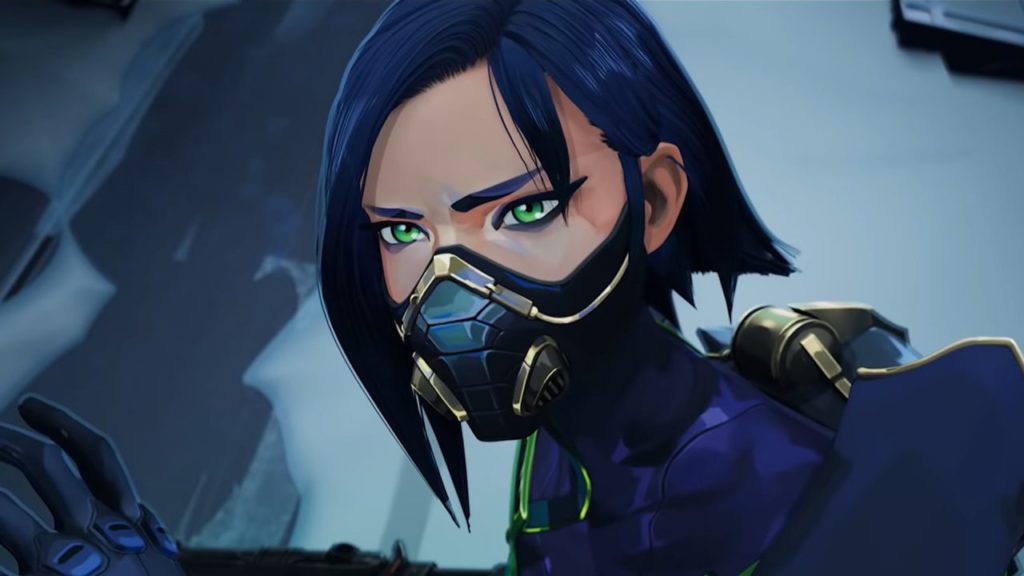VALORANT’s bi-weekly updates, balance changes, and new features set it apart from its tactical shooter counterparts. The game is constantly evolving, improving, and adapting to create a fun, rewarding, and competitive experience.
From combating AFKers to reworking the economy, here are the biggest and best changes made to VALORANT in 2021.
Solving the AFK problem
Riot slashed the AFK rate in half in 2021, fixing a problem that has long plagued the tactical shooter community. The AFK rate—the rate at which a player leaves or otherwise does not participate during a game—remained at a similar level in 2020. But after the devs created an improved AFK detection system and issued penalties for repeat offenders, it fell dramatically.
The changes made to the game in March helped detect players who had either disconnected from the game or stayed completely inactive for a prolonged period of time. A sophisticated tracking system and an AFK rating that records “AFK behavior” was also implemented, contributing to an overall better experience for players.
KAY/O’s debut
Yoru, Astra, and Chamber all have their merits and each brought something new to the table, but KAY/O is the pick of the bunch for 2021. Introduced as an agent that brings players “back to basics,” his kit puts an emphasis on gunplay.
KAY/O is a fun and familiar agent to players with a background in FPS. Complete with a flash grenade, a frag grenade, and a blade and ultimate that suppresses and nullifies enemy abilities, he forces players to shoot first and ask questions later.
Classic right-click nerfed
Riot took the punch out of the Classic in Patch 3.09, nerfing one of the strongest weapons in the game. A nifty little gun like the Classic (which is free by the way) never should have had the capacity to kill while jumping. Overperforming in close-to-mid-range encounters while jumping or on the move, the gun was pushing far beyond its boundaries.
The devs fiddled around with the Classic’s stats in November, increasing its walking firing error from 1.95 to 2.5, its running fire error from 2.1 to 3.2, and its jumping fire error from 1.1 to 2.1. This practically made running, gunning, jumping, and shooting obsolete, bringing the gun back down to Earth.
Toxins restored

Viper went from being one of the worst agents in 2020 to one of the best in 2021. Riot solidified the agent on VALORANT’s roster with buffs to Toxin (passive), Poison Cloud (Q), Toxic Screen (E), and Snakebite (C).
An update that went live in the month leading up to VCT Masters Reykjavik pushed what made Viper unique while still resonating with her theme. The changes almost immediately took effect, giving her the final ingredients needed to perform on the international stage.
By the time VCT Champions came around, Viper was one of the most-picked agents in the game, behind only Jett, Sova, and Astra. She was picked 100 percent of the time on Breeze and Icebox and was virtually undisputed on Bind.
On the money
Riot took a stab at VALORANT’s economy in Patch 3.0 and made sweeping changes to weapon and ability prices. These changes aimed to put an emphasis on gunplay and allow for players to create more dynamic loadouts and strategies. The cost of abilities like Jett’s Bladestorm, Raze’s Showstopper, and Sage’s Resurrection was increased, while the price of guns like the Marshall, Operator, and Guardian were reduced.
This, along with the introduction of KAY/O, made it clear the devs were dead set on taking the game back to its tactical shooter roots, where shooting mattered the most and abilities created tactical opportunities and simply augmented gunplay.
Make sure to follow us on YouTube for more esports news and analysis.

Be the first to comment